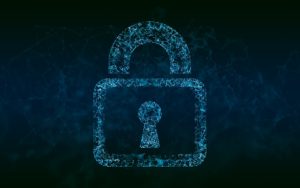Why Cybersecurity Careers are really In-Demand
You do not need to be an expert to see that cybersecurity has become an essential part of any modern business. With multiple breaches crippling even the most distinguished institutions, it is obvious to most that every organisation requires more cybersecurity professionals. Because of this this, there is a severe cybersecurity workforce shortage in the UK and around the world. Every role within IT will have some sort of cybersecurity aspect to it. There are as many positions in cybersecurity as there are lines of code running in your browser ranging from security operations, risk assessment, application security, investigations, compliance to educator. Therefore, it comes as no surprise that there is extremely low unemployment for people in the industry.

Reasons to consider a career a cybersecurity career
Unlimited growth potential
There is ever-expanding scope within the industry, representing and unlimited potential for growth both career-wise and for opportunity to educate yourself. Especially as many when original security teams were set up, they were built from types of people with broad skillsets, making specialists in forensics, application security, or incident response in high demand!
The chance to solve different challenges
When you combine the advancement of technology and its diversity, you can begin to see the various sorts of problems that cybersecurity specialists may solve. We rely on some tried-and-true concepts in cybersecurity, but strategies can vary on a daily basis. And there is always a fresh puzzle to be solved. New threats emerge with each new wave of technology. It is the responsibility of security experts to detect, comprehend, and mitigate these dangers. That changes dramatically when comparing how to protect a cloud-based website to safeguarding a pacemaker in an old patient. Each scenario is a new problem to solve and a new opportunity to rise to the occasion.
Cybersecurity matters
Our society is increasingly dependent on technology, with glaring signs that this trend will speed up. Whether you are an individual, small business or large multinational, it is very likely that you are reliant on computer systems daily. Alongside this comes with the rise of cloud services, smartphones, and the Internet of Things. As the cybercrime increase is primarily driven by the increasing exposure of identity information to the web via cloud services. It is obvious as to why there is a huge demand for more protection. However, it is not the only target, with cybercriminals becoming more sophisticated with their methodology, changing their targets, and how they affect organisations. Infrastructure in fields such as financial services, healthcare, and sciences are often targets and can be severely disrupted.
Typical Day-to-Day Activities for a Cybersecurity Professional
- Seeking to build in security during the development stages of software systems, networks, and data centres.
- Looking for vulnerabilities and risks in hardware and software.
- Finding the best way to secure the IT infrastructure of an organisation.
- Building firewalls into network infrastructures constantly monitoring for attacks and intrusions.
- When the cyber security specialist finds a potential threat or attempted breach, closing off the security vulnerability.
- Identifying the perpetrator and liaising with the police if necessary.
What is Required for A Person To Become A Professional Cybersecurity Expert?
As the industry professionals have a relatively young age, the career paths are not always clear. Graduates typically have two primary routes into cyber security. You can either start in a junior role to build hands-on experience or develop your technical skills through education such as a master’s in Cybersecurity. You can also consider a cyber security apprenticeship for graduates looking to get into the field – an ideal mix of on and off-the-job learning that results in a qualification and a wealth of industry experience. To progress your career in the field certifications such as:
- Certified Ethical Hacker (CEH) – the CEH is a popular entry-level cyber security certification that introduces you to the hacking tools and techniques used by real cyber criminals. By familiarising yourself with how hackers think, you’ll be better at fixing vulnerabilities and flaws you might otherwise miss.
- Certified Information Security Manager (CISM) – there’s growing recognition for the CISM, offered by ISACA. As the name suggests, the qualification is designed for security managers. It’s an expert-level certification that proves skills in risk management and enterprise security systems.
- Certified Information Systems Security Professional (CISSP) – the CISSP is among the most sought-after certifications in security. Achieving the CISSP certification is a career highlight and is aimed at the top-tier of cyber security professionals.

